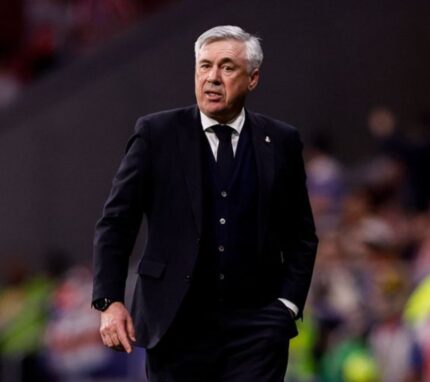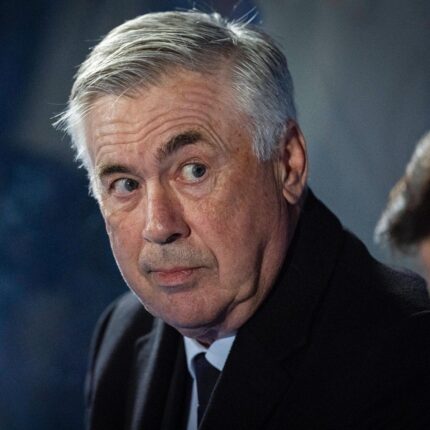Germany began their Euro 2024 encounter against Switzerland with clear intent, immediately taking control of possession. Within the first few minutes, Maximilian Mittelstädt won a free kick, signaling Germany’s aggressive approach. Switzerland’s Fabian Schär conceded a corner just two minutes in, highlighting the pressure exerted by the German side. Kai Havertz came close to converting this early dominance into a lead with a well-placed header, saved brilliantly by Switzerland’s goalkeeper. Despite their control, Germany’s inability to finish their chances in the opening moments foreshadowed a frustrating half.
Germany’s attacking prowess was evident as they created multiple opportunities. Ilkay Gündogan and Kai Havertz both had shots blocked, while Havertz’s later attempt was thwarted by an offside call. Toni Kroos’s leadership in midfield facilitated Germany’s attacks, but Switzerland’s defense, led by Granit Xhaka, remained resolute. This defensive solidity from Switzerland, coupled with Germany’s lack of clinical finishing, kept the scoreline level in the initial stages, despite Germany’s apparent dominance.
Controversial VAR Decision and Switzerland’s Breakthrough
The match took a dramatic turn in the 17th minute when Robert Andrich appeared to score for Germany, only for the goal to be overturned after a VAR review. This decision, a significant moment in the first half, disrupted Germany’s momentum. Switzerland capitalized on the situation shortly after, as Breel Embolo won a free kick, leading to a shift in control. Switzerland’s patience paid off in the 28th minute when Dan Ndoye found the back of the net, converting a close-range shot to give Switzerland a 1-0 lead.
This goal highlighted Switzerland’s tactical discipline and ability to strike effectively on the counter. Ndoye’s quick reaction and precise finish showcased Switzerland’s clinical edge, contrasting sharply with Germany’s struggles in front of goal. The Swiss side, buoyed by this advantage, managed to hold off Germany’s subsequent attacks, demonstrating a composed defensive strategy that kept their lead intact heading into halftime.
Germany’s Frustration Mounts Amidst Missed Opportunities
As the first half progressed, Germany’s frustration became palpable. Despite continuous efforts, including multiple corners and free kicks, the German team failed to break through Switzerland’s defense. Attempts by Antonio Rüdiger and Kai Havertz went astray, reflecting the mounting pressure and desperation within the German camp. Jonathan Tah’s yellow card for a foul on Breel Embolo epitomized Germany’s growing frustration and disciplinary lapses.
Switzerland, on the other hand, maintained their composure. Their defense, anchored by Fabian Schär and Granit Xhaka, effectively neutralized Germany’s attacks. Breel Embolo’s ability to win crucial free kicks and disrupt Germany’s rhythm further exemplified Switzerland’s strategic superiority. As the halftime whistle blew, Germany found themselves trailing 1-0, despite dominating possession and creating numerous chances. This deficit underscored the need for Germany to refine their finishing and composure in the second half if they hoped to overturn the scoreline.
Germany’s Persistent Pressure Pays Off Late
Germany began the second half trailing Switzerland 1-0 but quickly ramped up their efforts to equalize. The early moments saw a series of fouls, with Dan Ndoye conceding a free kick to Germany’s Antonio Rüdiger. Jamal Musiala soon tested Switzerland’s goalkeeper with a shot from outside the box, followed by a missed attempt from Ilkay Gündogan. Despite these early attempts, Germany struggled to find the back of the net, and Switzerland managed to keep their defense intact.
Germany’s persistence, however, remained unyielding. By the 55th minute, Toni Kroos narrowly missed another shot, indicating their mounting pressure. The introduction of David Raum and Nico Schlotterbeck brought fresh energy to the squad. Raum quickly made his presence felt with an attempt that went just over the bar, and Kai Havertz followed suit with several close headers. Despite missing these chances, Germany’s consistent pressure kept Switzerland on the defensive.
Tactical Changes and Substitutions Impact the Game
As the game progressed, both teams made significant substitutions. Germany brought on Maximilian Beier and later Niclas Füllkrug and Leroy Sané, aiming to inject more attacking prowess. Switzerland, too, made strategic changes, replacing Dan Ndoye and Breel Embolo with Zeki Amdouni and Kwadwo Duah, respectively, to maintain their lead and introduce fresh legs.
The impact of these changes was immediate. Germany’s attacks became more coordinated, with Raum and Schlotterbeck contributing significantly to the offensive plays. Granit Xhaka’s yellow card in the 67th minute for a foul on Musiala exemplified Switzerland’s growing defensive concerns. Despite Germany’s relentless attempts, including blocked shots by Joshua Kimmich and missed headers by Havertz, Switzerland’s defense held firm, aided by their tactical substitutions.
Dramatic Equalizer in Injury Time
The climax of the match came in the dying minutes. Germany continued to dominate possession and created several chances, with Leroy Sané and Kai Havertz coming agonizingly close. A crucial moment occurred in the 85th minute when Havertz’s attempt hit the bar, signaling that an equalizer was imminent. witzerland’s goalkeeper, Manuel Neuer, also made a crucial save against Granit Xhaka, keeping Germany’s hopes alive.
In the final moments, Germany’s persistence paid off. Niclas Füllkrug, a late substitute, scored a dramatic equalizer in the 90th+2 minute with a precise header assisted by David Raum. This goal salvaged a point for Germany and underscored their never-say-die attitude. Despite a handball by Toni Kroos in the 90th+4 minute, Germany held on to the draw. The match concluded with a 1-1 scoreline, reflecting Germany’s relentless pursuit and witzerland’s resilient defense.














